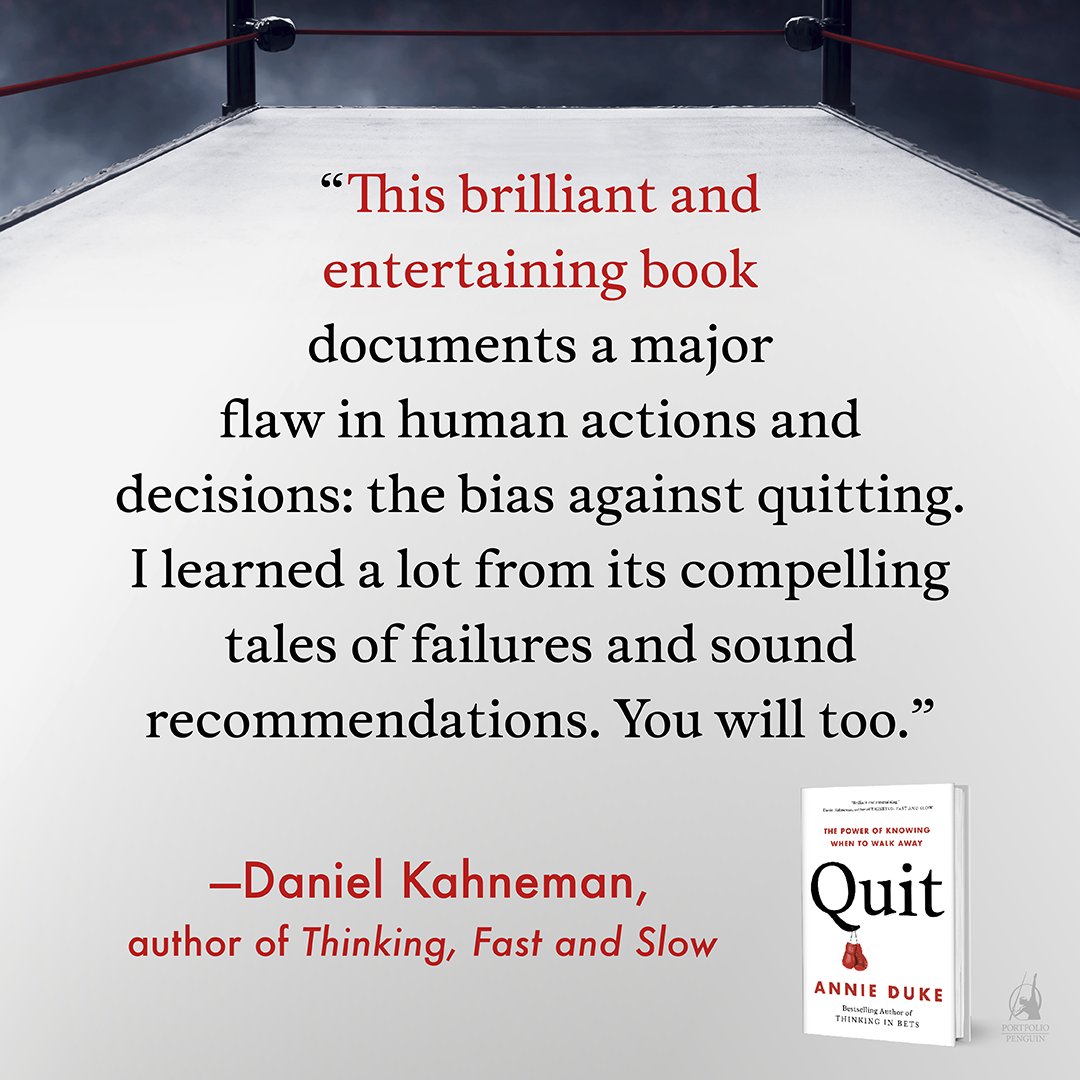
Speaker/writer/student of decision science. New book #QUIT out now! Author of #ThinkinginBets & #HowToDecide. I used to play poker. Navigating uncertainty.
9 subscribers
How to get URL link on X (Twitter) App


 I've been studying how to make better decisions under uncertainty my whole adult life: professional poker player career, work in cognitive science, writing 3 books about decision making & consulting w/ incredible companies like @firstround @RenegadePtnrs and @mParticle.
I've been studying how to make better decisions under uncertainty my whole adult life: professional poker player career, work in cognitive science, writing 3 books about decision making & consulting w/ incredible companies like @firstround @RenegadePtnrs and @mParticle.https://twitter.com/AnnieDuke/status/1577332849450962944I can guarantee using this framework with your team will help you make the best next move and save your team time, energy, and money.
https://twitter.com/cruickshank/status/1579183459574378496?s=46&t=TpsnR5-3blkzlo6_SbO1xABut *because it was easier* is exactly the problem with the project plan


